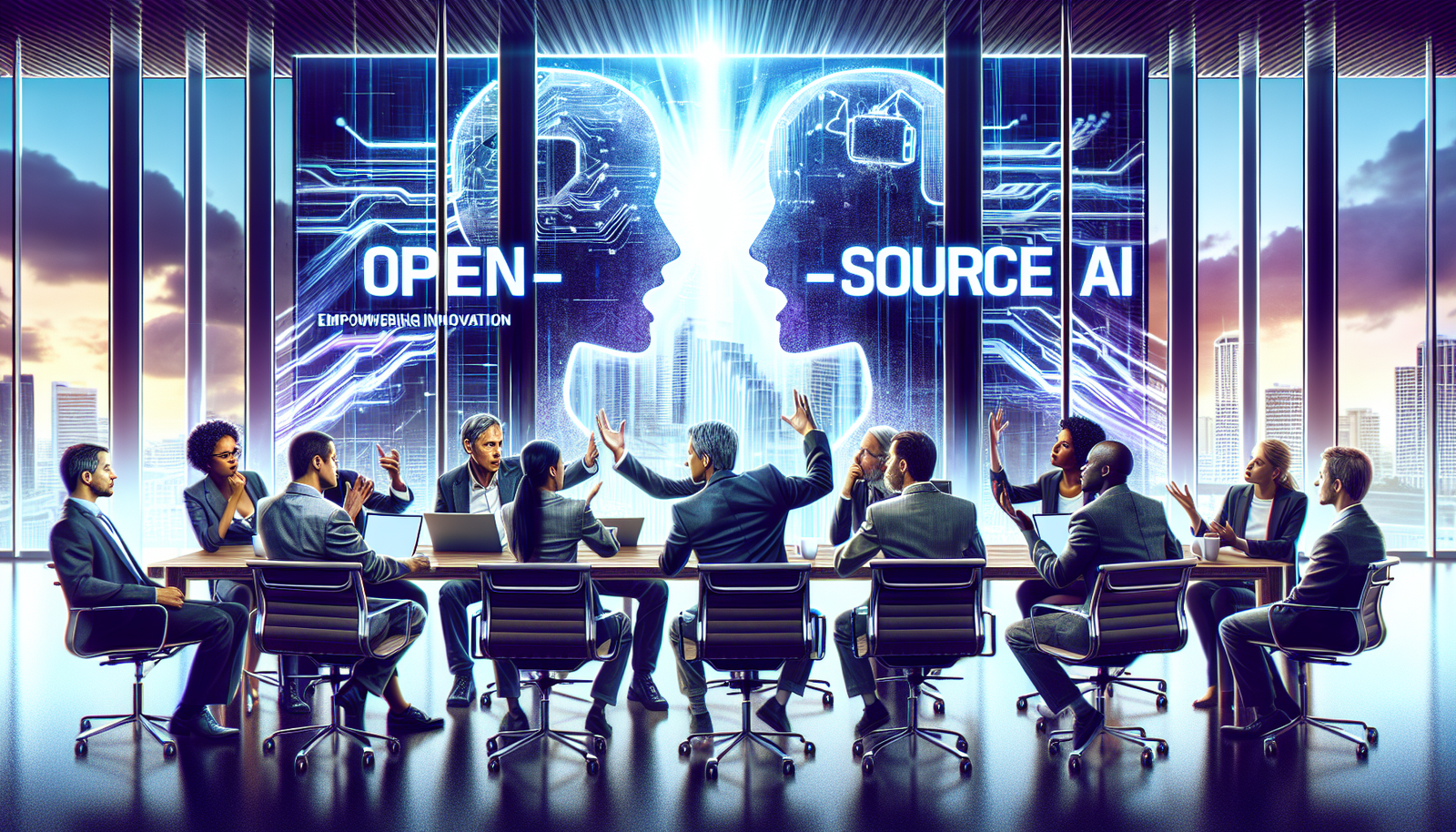The recent initiatives of industry leaders mark a decisive turning point in the analysis of open-source AI. This coordinated approach aims to establish clear and precise standards to regulate the use of artificial intelligence within a dynamic ecosystem. The definition of open-source AI poses crucial ethical challenges by making algorithms transparent and accessible to all. Industry professionals agree that these standards are essential to stimulate innovation while preventing potential abuses. In the face of increasing expectations, this framework promises to redefine the contours of democratized and responsible artificial intelligence.
The framework for defining open-source AI
The Open Source Initiative (OSI) recently launched a framework for evaluating artificial intelligence (AI) systems and their classification as open-source. This initiative marks a significant turning point in the way AI is developed and used within the industry.
This framework, designated as the Open Source AI Definition (OSAID), was presented at the All Things Open conference. It results from a comprehensive global effort, including extensive research, international workshops, and a year-long community design process. The framework defines the necessary requirements for an AI system to be considered open-source.
Fundamental requirements of open-source
Four essential freedoms are highlighted to qualify an AI system as open-source:
- Use the system for any purpose, without needing to ask for permission.
- Study how the system works and inspect its components.
- Modify the system for any reason, including changing its outcomes.
- Share the system with others, with or without modifications, for any purpose.
These freedoms apply to both fully functional systems and discrete elements of a system. However, to exercise these freedoms, access to the preferred form for making modifications is necessary.
An inclusive co-design process
Carlo Piana, chair of the OSI board, emphasized the culmination of a well-developed, inclusive, and fair co-design process. The board’s confidence in the developed definition reflects a respect for open-source standards.
One significant criterion of the framework requires that open-source models provide sufficient information about their training data. This requirement ensures that a competent person can recreate an equivalent system using similar data. Ayah Bdeir, head of AI strategy at Mozilla, highlighted this pragmatic compromise between ideological purity and concrete implementation.
Industry support and future implications
The Digital Public Goods Alliance (DPGA) has expressed its support for the OSI regarding the definition of open-source AI. Liv Marte Nordhaug, director-general of the DPGA secretariat, announced the integration of this foundational work into updates to their Digital Public Goods Standard for AI applications.
Similarly, the EleutherAI Institute, known for its commitment to the nonprofit development of AI, has also endorsed this definition. Stella Biderman, executive director of the institute, emphasized that this definition supports the needs of independent researchers in machine learning.
The definition emphasizes the importance of including information about data and code when sharing open-source models. These requirements ensure the transparency needed to modify the AI system.
Legal challenges and perspectives
Stefano Maffulli, executive director of the OSI, acknowledged the challenges encountered during the development of the framework. There were sometimes lively exchanges and diverging opinions, but the final result aligns with the initial objectives of the project.
The OSAID does not require a specific legal mechanism to ensure that the model parameters are freely accessible to all. However, licenses or legal instruments may be involved in the near future, as evidenced by developments in the legal system concerning open-source AI systems.
The OSAID framework represents a decisive advancement in the development of open-source AI. Industry stakeholders are increasingly supportive of this initiative. The weeks and months to come will reveal whether these definitions will be adopted on a larger scale.
Frequently Asked Questions about the open-source AI definition supported by industry leaders
What is the open-source AI definition proposed by the Open Source Initiative?
It is a framework that assesses whether artificial intelligence systems can be classified as open-source. This definition stipulates that the same open-source requirements apply to all components of an AI system, including models, parameters, and source code.
Why is it important for industry leaders to support this definition?
The support of industry leaders for this definition promotes transparency and collaboration in the field of AI, enabling better understanding, increased oversight, and continuous improvement of AI systems.
What are the four essential freedoms required for an open-source AI system?
The four essential freedoms are: 1) to use the system freely for any purpose, 2) to study and inspect how the system works, 3) to modify the system for any use, and 4) to share the system with others.
How does the definition ensure the transparency of AI models?
The definition requires that AI models provide sufficient information about their training data, so that a qualified person can recreate an equivalent system using the same or similar data.
What challenges were encountered during the development of this definition?
Challenges include sometimes lively exchanges and divergent opinions among stakeholders. However, the process achieved consensus on the initial goals, resulting in a robust definition.
Does the open-source AI definition create high expectations for businesses?
Yes, it encourages businesses to share more data and code while relaxing some requirements to avoid hindering practical development and obstructing open-source initiatives.
Is the open-source AI definition subject to future adaptations?
Yes, it is a starting point. The Open Source Initiative plans to continue collaborating with communities to improve and adjust the definition over time.
What organizations support the open-source AI definition besides the Open Source Initiative?
Organizations such as the Digital Public Goods Alliance and the EleutherAI Institute have also expressed their support, highlighting the importance of promoting open-source principles in AI development.






